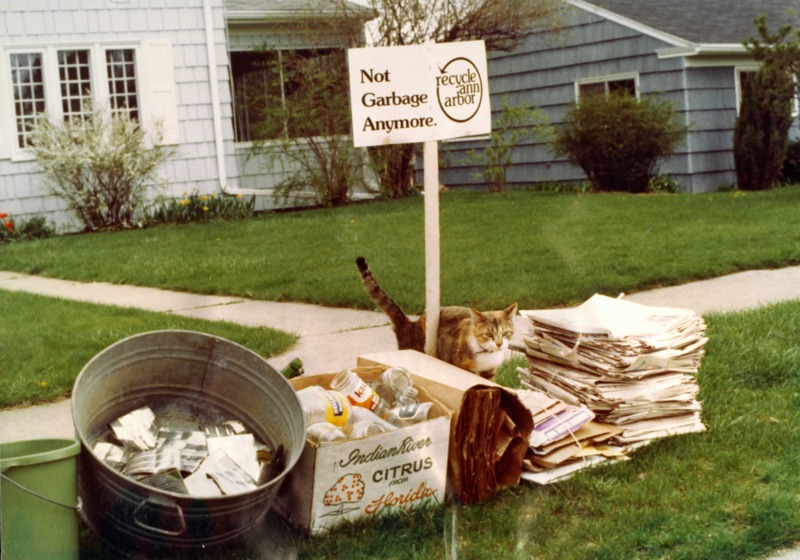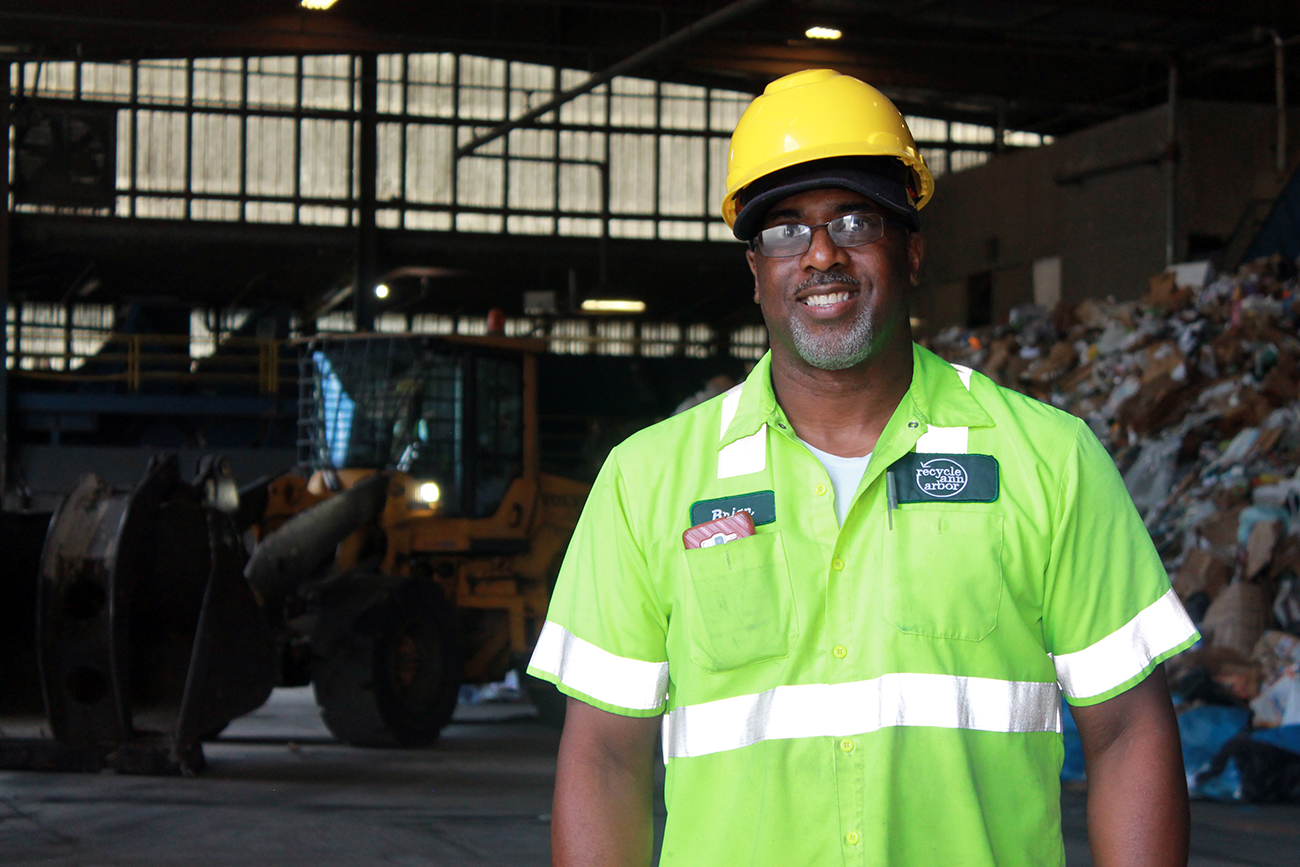
Revitalizing Ann Arbor's Recycling Program
October 13th, 2021
Almost 50 years since the birth of the modern environmental movement, and the inception of Ann Arbor's first recycling program in the early 1970s, our movement, and our recycling program are ready for a rebirth. In the 1970s, amongst rampant corporate polluters, lack of federal government environmental oversight, and gross environmental injustices, organized recycling efforts were a radical idea. Fifty years later, amongst similar pollution, injustice, and environmental deregulation, it's time for recycling to change the status quo and help lead communities toward zero-waste, a radical idea in today's throwaway society.
It's not just about recycling anymore. It's about recycling smarter while consuming a whole lot less. Recycling shouldn't encourage you to keep buying single-use plastics because you think they can be recycled– single-use plastics are hard to recover and often become pollution. It's time to push for the redesign of packaging, rethinking systems, and a rapid reduction in waste.
Ann Arbor's Recycling program is ready for revitalization. With the industry in jeopardy of becoming an exercise in greenwashing and surrounding communities considering incineration as a solution to their recycling problems, we're envisioning a way to move forward toward a zero-waste future. We will help bolster our area's recycling efforts, reinvest in its infrastructure, foster regional end markets, and watchdog the industry for efforts that put profit over the planet.
Part 1: We Rebuild the MRF

As a community-based non-profit, our focus is our zero waste mission. We prioritize the needs of the communities we serve over the needs of shareholders. It is our zero waste mission that drives our plan to rebuild our local MRF.
Our MRF will positively impact our environment, promote our local economy, and provide a greater community benefit.
Our MRF will be a hub for our region– providing much-needed services throughout Washtenaw County and helping move us toward a regional approach to recycling. As a hub for the greater community, we will foster resilient and sustainable end markets for our materials.
The State of Michigan Recycling Program seeks to increase infrastructure and recycling capacity across the state to double our recycling diversion rate. They see the need for increased capacity in our region and have awarded Recycle Ann Arbor a grant for $800,000 to support the project.
Through expert engineering and state-of-the-art equipment, our MRF will achieve the highest recovery rate possible. By working closely with our network, we will ensure the highest value and best use for our recyclables. We will monitor the materials coming in and out and ensure with transparency that they reach environmentally sound end markets.
With our partners at the City of Ann Arbor, we are exploring how Ann Arbor's restored MRF might demonstrate green building, clean energy, and zero waste through potential solar energy, electric fueling stations, and energy-efficient lighting. We will work to further the City of Ann Arbor's goal to reach carbon neutrality by 2030.
The Ann Arbor Materials Recovery Facility used to be an essential educational asset providing recycling and zero waste classes and tours. We will restore its educational benefit to our community and use it to cultivate a zero-waste culture.
As a result of targeted outreach and education, we will help our community recycle smarter, creating less residual contamination and higher grade end materials. We will actively seek out solutions to eliminate problems from the waste stream.
Through our partnership with our sister organization, the Ecology Center, we will help push manufacturers to design zero-waste packaging and be held accountable for the waste they create.
Through the creation of over 20 union jobs, money invested in operating the MRF stays local. And, as a non-profit, any surplus funds are used to support community zero waste programs and services.
We're committed to a just and sustainable future, and we believe in our power as a mission-driven, community-based zero waste provider to meet our guiding vision for the next decade– to build a circular economy that addresses our climate crisis starting with innovative community-based zero waste solutions in Southeast Michigan.